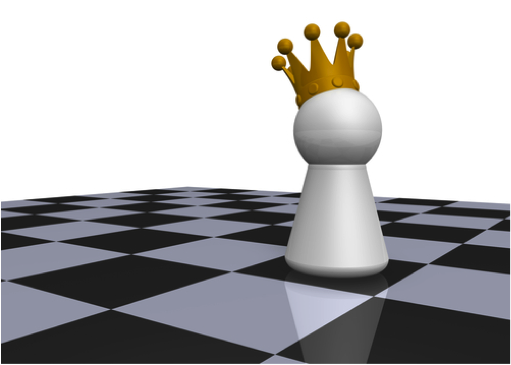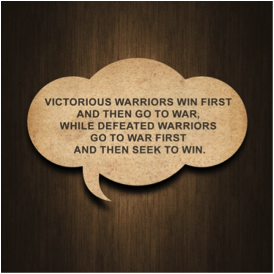Is Talent the New Strategy?

After survey, station & group execs and consultants disappear for a day or two of the programming "strategy" meeting. Calendar the next one after Survey 1 Tues 11 March. Must be post-Olympics, when a noun so easily turns into a verb, like podiumed or medalled!
For many years this has been a soul-searching trawl through the survey and other research, followed by a deep review of target, music, content, imaging and marketing, resulting in an action-plan for the next survey.
But how does this model hold up in 2014?
Strategy, when misused, is one of those all-purpose corporate weasel-words, that can make it sound like you know what you're doing.
Dictionary definition: a plan, method or series of manoeuvres (tactics) or stratagems for obtaining a specific goal or result.
Business students wade through piles of complex strategic theory and buzz-words, and common word-pictures can involve hammers and nails, which I'm not 100% on. Suffice to say that short-term tactics (actions) are the means of executing the long-term strategy (plan).
Which, by the way, is not to confuse the strategy with the goal either.

And can also lead to a further debate about which is more important, strategy or execution? Is it possible to execute the wrong thing really well? Great tactic, shame about the strategy! Or vice versa.
BTW new actions for the survey that starts next week are tactics. Not strategy, which should be set a long time before surveys, and is way too late to change in the short-term.
Where are we now?
Back in January 2012 when Radio Today launched, I wrote an article about the 5 essentials for every radio brand. The 5 key principles of growth over the next 5 years.
I'm still comfortable with the overall thrust, but #3 Strategy is the Content-Content is the Strategy, is worth a review.
Where that came from was the fast growing trend in the 2000s for listeners to define you by your content, driven by the proliferation of digital entertainment sources, social media, the global commoditisation of hits, and instant, online access to millions of self-programmable songs.

Overturning traditional station programming strategy techniques, influenced by Sun Tzu's Art of War, Jack Trout's Positioning etc, to be now less about the station brand images and out-foxing competitors, and more about the content, wherever it comes from. Think viral videos and apps.
Sure, you still have the broad parameters of where your brand sits in the competitive landscape, where it needs to be to achieve your corporate audience & revenue goals, demographic targets, music or talk format definition and so on.
 But what do listeners really care about?
But what do listeners really care about?
Instant gratification!
And where do they think they get it from? Not the station, but the talent.
Whatever your end goal, the strategy (plan) is to use your personalities to execute the actions (tactics) that take you to your end business goal.
At the very least, review how every station activity could have a name & face to it.
Bleedin' obvious?
Personalities have been the lifeblood of radio almost from the start, and of course most commercial formats require at least a personality breakfast show in prime-time, to maximise cume and share.
Music station strategy meetings almost always review the status of breakfast and drive shows, and talk radio has always been about the individual show hosts.
But the new proposition is …
That even the station brand and how it's defined by listeners, is now well overshadowed by personality content. At all times of the day.
If you ask someone who they love listening to and why, they're way more likely to name a personality than a wallpaper positioning statement!
May seem more of a subtle shift than a revolution, but consider recent major developments such as …
- the Hamish & Andy phenomenon seamlessly crossing over radio, TV and digital channels, including commercial integration with the outstanding AAMI Rhonda & Ketut campaign.
- ARN blowing up their AC Mix format in Sydney to rebuild as the 3rd CHR, around the newly-available Kyle & Jackie O Show. Which also includes other global distribution ventures.
- NZ's Polly & Grant hosting their own show on iHeart and various TRN brands, other than their ZM home.
It's also fascinating how much traffic and heated debate on Radio Today is generated by articles on talent, both new and established. It's not just gossip, but in-depth interest in what really drives our industry.
And not only on-air, but the considerable off-air talent represented in our countdown to the ACRAs, and during the year.
The implications?
First to mind is certainly the considerable clout wielded by top performers. It's always been there, but is growing ever stronger, with more complex agreements and a high level of talent management expertise required on both sides.

Wrangling over who owns social-media followings will be ongoing, and a bigger deal than the current music streaming issue.
After all, social media by definition is more about connections between people, than people with faceless brands, no matter the latest social marketing theories.
I'd bet on a deeper engagement (beyond Likes) with an individual personality's FB page, than the station's, and extending into a wide variety of current and future forms of social media.
Long-term strategy will focus on reviewing the available talent with the most revenue, audience and social media potential, and everything else designed around that availability.
At the top level of company ownership, we have the current example of Alan Jones and Ray Hadley "reportedly" having the power to block the potential MRN/Fairfax merger, even resisting the relentless drive from Gina Rinehart (see here). Though this has since been vehemently denied by John Singleton (see here), there's no doubt they have a major influence on MRN direction.
 Radio is coming back …
Radio is coming back …
As an investment proposition, while print continues to be in all sorts of trouble. Why?
Talent is the strategy!
One unique individual/show vs. millions of songs.
Eriks Celmins is Managing Director of Third Wave Media and InsiderFocus, consultant for research, strategy and content. Find out more here.



